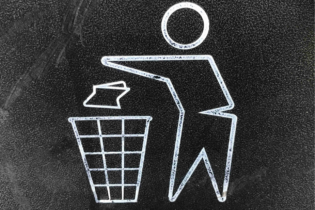 Industry has significant concerns surrounding increased government intervention in waste management regulation and the imposition of a waste management charge or tax.
Industry has significant concerns surrounding increased government intervention in waste management regulation and the imposition of a waste management charge or tax.
Industry response
While Packaging SA agrees firmly with the premise of cleaning up the environment, maximising the diversion of waste from landfill, promoting recycling and creating employment and a growing the second resources economy, the organisation has raised a number of concerns around this proposed new policy. For starters, the local converting industry, in the main, is not in good economic shape. Additional costs in the form of taxes will likely make matters worse and this may lead to increased automation and job losses, explains Charles Muller, executive director of Packaging SA. Imports of packaging and packaged goods in all likelihood will increase and taxes will further place local industry at a structural competitive disadvantage to foreign packaging companies. Furthermore, revenue collected by Treasury via SARS will not be ring-fenced and consequently other governmental spending priorities such as education, healthcare, and infrastructure may result in funding not becoming available to run the existing initiatives.“Industry could also abdicate responsibility for all the voluntary and successful initiatives that are currently in place – they certainly won’t pay a mandatory tax as well as continue to voluntarily support the initiatives that they currently fund,” says Muller. “There could be another Buyisa-e-bag debacle where plastic bag taxes destined for environmental activities have seldom materialised.”
In addition to this, lack of or delays in funding through the WMB may result in the collapse of the existing successful Material Responsibility Organisations (TGRC, COLLECT-A-CAN, PETCO, POLYCO, PSPC, SAVA, PRASA) who are currently responsible for thousands of jobs. South Africa’s paper and packaging collection rate is currently in excess of 52% (and increasing) and compares very favourably with many first world countries. However, Muller fears that there may be a regression in recycling rates such as the ones that occurred in Hungary and other parts of the world where the government has introduced taxes.







